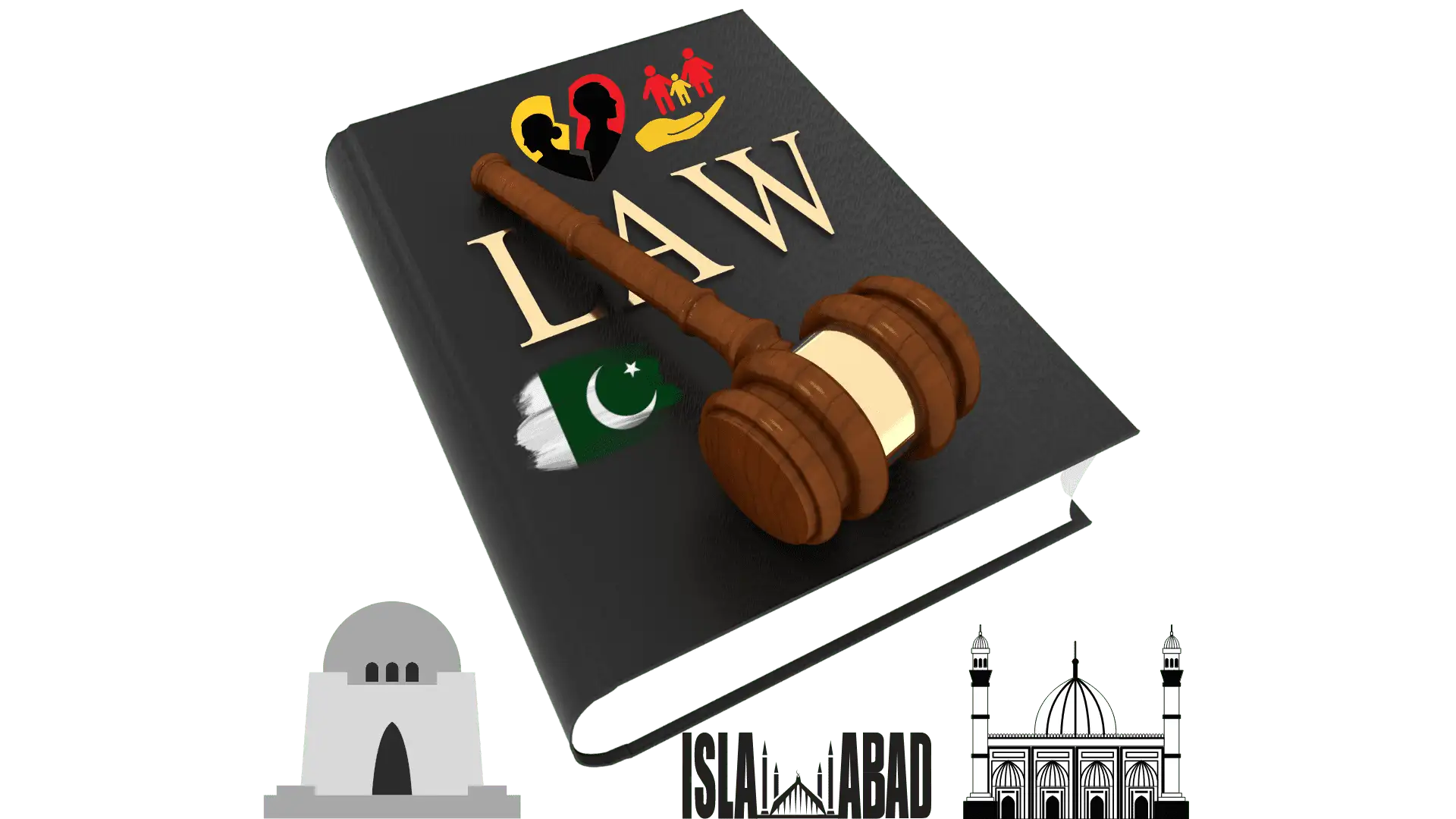Karachi Office
+92 333 112 7830
Lahore Office
+92 333 112 7835
Islamabad Office
+92 333 112 7837
Best Family & Divorce Lawyers in Pakistan – Karachi, Lahore, Islamabad & Rawalpindi. For Free Legal Advice, Please Call: Advocate Sobia Mohsin Shah – Family & Divorce Law Practitioner: 0333 112 7835

Family lawyers in Pakistan provide legal representation in divorce, khula, child custody, maintenance, guardianship, dower recovery, and all matters adjudicated before family courts under Pakistani law. Family law disputes involve personal status, parental rights, and financial security, making proper legal handling essential from the outset.
This page serves as a national family law authority, explaining divorce and family court procedures applicable across Pakistan, including Karachi, Lahore, Islamabad, and Rawalpindi. While filing practices may vary by district, the governing legal framework remains uniform nationwide under statutory law and judicial precedent.

 Table: Family Law Remedies Across Pakistan
Table: Family Law Remedies Across PakistanFamily Law Matter | Governing Law | Forum | Typical Timeline |
|---|---|---|---|
| Divorce (Talaq) | Muslim Family Laws Ordinance, 1961 | Union Council + Family Court | ~90 days |
| Khula | Family Courts Act, 1964 | Family Court | 3–6 months |
| Child Custody | Guardian & Wards Act, 1890 | Family Court | Case-dependent |
| Child / Wife Maintenance | Family Courts Act | Family Court | Interim + Final |
| Dower (Haq Mehr) Recovery | Family Courts Act | Family Court | Case-dependent |
These remedies are governed by uniform statutory law across Pakistan. Family courts apply the same legal principles nationwide, though procedural handling may differ slightly based on territorial jurisdiction and court administration.
Family law in Pakistan is governed by uniform statutory provisions, while court filing practices may vary by district. For city-specific legal guidance and local family court practice, see our dedicated pages below:
• Family Lawyers in Karachi
• Family Lawyers in Lahore
• Family Lawyers in Islamabad
• Family Lawyers in Rawalpindi
Our family and divorce lawyers provide legal assistance in a wide range of family law matters, including:
Divorce (Talaq) under Pakistani family laws
Khula proceedings through family courts
Divorce by mutual consent
Child custody and visitation disputes
Child maintenance and spousal maintenance
Enforcement of family court decrees
Each matter is approached with careful legal analysis, ensuring procedural correctness and lawful outcomes.
Divorce and khula cases in Pakistan are adjudicated before family courts having territorial jurisdiction. In Karachi, Lahore, Islamabad, and Rawalpindi, all family matters are also heard by family courts based on marital residence or place of Nikah.
Jurisdictional awareness is essential in divorce litigation. Proper filing, service of notices, and compliance with court directions can significantly affect timelines and outcomes. Our legal team ensures that cases are filed before the appropriate forum to avoid unnecessary objections or delays.

Under Pakistani law, divorce and khula are governed by statutory provisions and judicial precedents. Talaq must follow the procedure prescribed under the Muslim Family Laws Ordinance, including notice requirements and reconciliation periods. Khula proceedings are initiated through family courts, where the court examines the grounds presented by the wife.
While Islamic principles inform family law, the enforceability of divorce and khula depends on compliance with statutory procedures and court processes.
Family litigation requires discretion, accuracy, and responsible advocacy. Our divorce lawyers maintain transparent communication with clients, explain legal options clearly, and provide realistic guidance regarding outcomes. Each case is handled with professional integrity and respect for the sensitive nature of family disputes.
Family and Divorce lawyers must work within the procedural framework of family courts, which operate under the West Pakistan Family Courts Act, 1964. (W. P. ACT NO. XXXV OF 1964), and relevant procedural rules. Each divorce or khula case is filed based on territorial jurisdiction, which may depend on the place of Nikah, last matrimonial residence, or current residence of either spouse.
Family courts handle a large volume of divorce, khula, child custody, and maintenance cases daily. Familiarity with local court practices, documentation standards, and procedural timelines plays a significant role in the effective handling of family law litigation.
Divorce and khula matters in Karachi are adjudicated before designated family courts located across various districts of the city. These courts exercise jurisdiction over dissolution of marriage, child custody, guardianship, and maintenance disputes.
Our family and divorce lawyers routinely appear before family courts, including those in Karachi South, Karachi East, Karachi Central, Karachi West, Malir, and Korangi. Each district court follows uniform statutory law, but procedural efficiency often depends on correct filing, documentation, and compliance with court directions.
Jurisdiction in divorce and khula cases is a critical legal consideration. A case filed before an incorrect forum may result in objections or transfer delays. Our Family and Divorce lawyers throughout the country assess jurisdiction carefully before initiating proceedings to ensure compliance with legal requirements.
Generally, jurisdiction may be established based on:
Place of Nikah registration
Last matrimonial residence
Current residence of the wife
Location where the cause of action arose
Proper jurisdictional filing contributes to smoother proceedings and timely adjudication.
Family law practice in Pakistan involves handling multiple forms of marital dissolution, each governed by distinct legal procedures. Our family and divorce lawyers provide guidance based on the nature of the dispute and the legal remedy sought.
Khula cases are filed before family courts, where the court evaluates grounds presented by the wife and ensures compliance with legal procedure. Talaq cases require adherence to statutory notice and reconciliation mechanisms under applicable law. Mutual consent divorce matters involve negotiated settlements. Each process requires structured legal handling to avoid procedural defects or enforceability issues.
Divorce proceedings involving children require careful legal assessment to safeguard the welfare of minors. Our Family and Divorce lawyers in Pakistan represent parents in child custody, visitation, and maintenance matters before family courts.
Family courts in Pakistan consider multiple factors when deciding custody arrangements, including the age of the child, parental capability, and welfare considerations. Maintenance claims are assessed based on the financial capacity of the father and the reasonable needs of the child.
Proper documentation and legal presentation are essential in custody and maintenance litigation to ensure fair outcomes.
Engaging family and divorce lawyers who regularly practice before local family courts provides procedural and strategic advantages. Local court familiarity enables timely filings, accurate compliance with court directions, and efficient case management.
Divorce, Khula, and child custody/guardianship cases often involve sensitive timelines, including reconciliation periods, service of notices, and recording of statements. Our experienced family and divorce lawyers across Pakistan, including Karachi, Lahore, Islamabad, and Rawalpindi Karachi, Lahore, Islamabad, and Rawalpindi, ensure that each procedural step is handled correctly to minimize delays and legal complications.
Our family and divorce lawyers in Pakistan handle a wide range of family law matters governed by statutory provisions and judicial practice. Each type of family dispute follows a distinct legal route, involves different authorities, and carries different procedural timelines. Understanding these distinctions helps parties make informed legal decisions.
Each category of family litigation requires compliance with specific procedural steps and evidentiary standards. Divorce lawyers ensure that filings, notices, and court appearances are handled correctly to avoid procedural objections or delays.
Divorce proceedings in Pakistan commonly involve either Talaq or Khula, each governed by distinct legal principles and procedural requirements. While both lead to dissolution of marriage, their initiation, process, and legal consequences differ significantly under Pakistani law.
 Table
TableLegal Aspect | Talaq | Khula |
|---|---|---|
| Initiated By | Husband | Wife |
| Court Involvement | Indirect (Notice & Confirmation) | Mandatory |
| Governing Law | MFLO 1961 | Family Courts Act |
| Consent Requirement | Not required | Court-assessed |
| Dower (Haq Mehr) | Not returned | Usually returned |
| Waiting Period | Mandatory (Iddat) | Mandatory (Iddat) |
| Typical Duration | 90 days | 3–6 months |
Divorce litigation before family courts in Pakistan follows structured procedural stages under family law. Understanding these stages helps parties anticipate timelines and procedural requirements throughout the case lifecycle.
 Table
TableStage | Legal Action |
|---|---|
| Case Filing | Filing of suit or notice before the competent authority |
| Service of Notice | Court-issued summons to the opposing party |
| Reconciliation | Mandatory reconciliation attempts |
| Evidence | Recording of statements and documents |
| Arguments | Legal submissions by counsel |
| Judgment | Court decision |
| Decree | Issuance of a certified decree |
Family and divorce lawyers play a central role in handling divorce, khula, and related family court matters under Pakistani law. Family litigation involves statutory compliance, jurisdictional accuracy, procedural timelines, and legally enforceable outcomes. Family & divorce lawyers assist parties in preparing pleadings, filing cases before competent family courts, responding to notices, presenting evidence, and ensuring compliance with court directions at every stage of proceedings.
In divorce and khula matters, the role of family and divorce lawyers extends beyond dissolution of marriage. Legal representation includes advising on post-marital rights, maintenance claims, recovery of dower, and financial obligations arising from separation. Family & divorce lawyers assess statutory entitlement, documentary evidence, and judicial practice to ensure that financial claims are pursued lawfully through family courts rather than informal or unenforceable arrangements.
Child custody, visitation, and maintenance disputes form a critical component of family law litigation. Family and divorce lawyers represent parents before family courts where the welfare of the minor remains the paramount consideration. Courts assess factors such as age of the child, care arrangements, education, and overall well-being. Family & divorce lawyers present custody and maintenance cases in a structured manner, supported by evidence and aligned with established legal principles.
Where appropriate, family and divorce lawyers facilitate lawful resolution mechanisms, including reconciliation efforts, mediation, and court-approved settlements. Pakistani family law encourages reconciliation where possible, subject to statutory safeguards. Family & divorce lawyers guide parties through these processes while ensuring that any compromise or decree remains legally valid and enforceable under family court jurisdiction.
Family law practice further includes representation in matters such as divorce by mutual consent, spousal maintenance, enforcement of family court decrees, and proceedings ancillary to marital disputes. Family and divorce lawyers provide realistic legal guidance based on statutory provisions, judicial precedent, and local court practice, enabling parties to make informed decisions regarding their legal position.
Professional family & divorce lawyers maintain procedural accuracy, transparency, and responsible advocacy throughout family court proceedings. Their role is not limited to litigation alone but extends to ensuring that divorce, khula, child custody, and maintenance matters are resolved strictly through lawful process, with clarity of rights and obligations under Pakistani family law.

Family and divorce lawyers represent parties before family courts in divorce and khula matters by preparing pleadings, advising on statutory procedure, presenting evidence, and ensuring compliance with court directions. Legal representation helps avoid procedural defects and ensures that the dissolution of marriage is legally valid and enforceable under Pakistani law.
Divorce (talaq) is initiated by the husband and must follow the notice and reconciliation procedure prescribed under the Muslim Family Laws Ordinance, 1961. Khula is initiated by the wife through the family court, where the court examines grounds for separation and issues a decree after satisfaction of legal requirements.
Legal representation is not mandatory, but family and divorce lawyers play a critical role in ensuring correct filing, jurisdictional compliance, proper service of notices, and effective presentation of evidence. Representation becomes especially important in contested divorce, khula, custody, and maintenance matters.
Family and divorce lawyers represent parents in child custody and visitation matters by presenting evidence relevant to the welfare of the minor. Family courts decide custody based on the child’s age, care arrangements, education, and overall well-being, rather than rigid entitlement rules.
In Pakistan, matters relating to child custody and guardianship are adjudicated by family courts exercising jurisdiction under the West Pakistan Family Courts Act, 1964. While guardianship principles originate from the Guardian and Wards Act, 1890, the same family courts commonly exercise powers over custody and guardianship disputes. In practice, family courts handle custody, visitation, and welfare of minor cases, with decisions guided primarily by the welfare of the child rather than rigid technical distinctions between courts.
Maintenance claims are assessed by family courts based on statutory entitlement, the financial capacity of the liable party, and the reasonable needs of the claimant. Family and divorce lawyers assist in filing maintenance applications, supporting claims with evidence, and enforcing court-issued maintenance orders.
Yes. Recovery of dower and dowry articles is a legally enforceable right under Pakistani family law. Family and divorce lawyers file appropriate proceedings before the family courts to recover unpaid dower and return of dowry articles through lawful process.
Pakistani family law encourages reconciliation where possible. Family and divorce lawyers facilitate lawful mediation and reconciliation efforts while ensuring that any settlement or compromise is recorded properly and approved by the family court to maintain legal enforceability.
Timelines vary depending on the nature of the case, level of contest, and procedural compliance. Talaq matters generally involve statutory reconciliation periods, while khula cases may take several months depending on the evidence and court schedules. Family and divorce lawyers help manage cases efficiently to avoid unnecessary delays.
Non-compliance with family court decrees, including maintenance or custody orders, can lead to execution proceedings. Family and divorce lawyers assist in enforcing decrees through lawful mechanisms available under family court procedure.
Yes. In mutual consent divorce matters, family and divorce lawyers assist in drafting settlement terms, filing joint applications, and obtaining court confirmation to ensure that the divorce is legally recognized and enforceable.
Divorce and khula decrees issued by competent family courts are legally valid under Pakistani law. Proper compliance with statutory procedure ensures recognition for all legal and administrative purposes, including registration and documentation.
Family and divorce lawyers represent clients before family courts across Pakistan, subject to territorial jurisdiction rules. Jurisdiction is generally determined by the place of nikah, last matrimonial residence, or residence of the wife, depending on the nature of the case.

Khula is initiated by the wife through the family court when continuation of the marriage becomes untenable, whereas Talaq is initiated by the husband in accordance with the procedure prescribed under Pakistani family law. Khula requires judicial determination and is granted through a court decree, while Talaq involves statutory notice, reconciliation proceedings, and confirmation through the relevant authority.
In Khula, the wife may be required to return the Haq Mehr, subject to court assessment, whereas in Talaq, return of Haq Mehr is not generally required. In both cases, matters relating to child custody, maintenance, and welfare are decided independently by the family court based on law and the best interests of the child.
Our family and divorce law practice maintains offices in Karachi, Islamabad, Rawalpindi, and Lahore, Pakistan. Family and divorce lawyers associated with the firm represent clients before family courts across Pakistan, subject to territorial jurisdiction and procedural requirements under applicable law.
With over 40 years of professional experience in family law matters, our legal practitioners handle divorce, khula, child custody, maintenance, and related family court proceedings. Each case is managed in accordance with statutory procedure, judicial precedent, and local court practice.
Legal representation is provided in contested and uncontested matters, including dissolution of marriage, custody and guardianship disputes, recovery of dower, and enforcement of family court decrees. Clients are advised based on lawful remedies and enforceable outcomes under Pakistani family law.



Divorce and khula remain the principal areas of practice of our experienced family lawyers. As a member firm of Pakistan Legal Forum and the Qanoon Group, our Law Firm maintains professional standards focused on lawful process, ethical representation, and informed legal guidance in family litigation.
Khula is a lawful mode of dissolution of marriage through which a married woman may seek separation from her husband by approaching the family court. It is recognised under Islamic principles and enforced through judicial process in Pakistan. Upon dissolution of marriage, the responsibility for the maintenance, upbringing, and education of the children ordinarily remains with the father, subject to determination by the competent court.

Divorce and khula are recognized under Islamic principles as lawful means of dissolving a marriage when reconciliation is no longer possible. While Islam places strong emphasis on preserving marital harmony, it also provides structured mechanisms for separation where continuation of the relationship becomes untenable.
In Pakistan, the legal recognition and enforceability of divorce and khula depend on compliance with statutory procedures and family court processes.

If you are facing a divorce or khula dispute, our family and divorce lawyers provide clear legal guidance and court representation, ensuring procedural compliance and protection of your lawful rights throughout the family court process. Call or Send a Message on WhatsApp to Advocate Sobia Mohsin: +92 333 112 7835
+92 333 112 7830
+92 333 112 7835
+92 333 112 7837
Get your NADRA-verified Divorce Registration Certificate within a couple of days anywhere in Pakistan, subject to territorial jurisdiction.
Legal services for women seeking to dissolve their marriage through Khula with the help of our expert family lawyers in Karachi, Lahore, Islamabad, and ...
Legal issue that affects both the child's nutrition and future. Helping responsible parent to file a legal claim for child custody...
Divorce papers: Talaq Nama (Divorce Deed) or a NADRA Divorce Certificate is required? Get Free Legal Advice for Divorce and Fivorce Papers
Consult our expert lawyers for the legal process of adoption in Pakistan, especially in Karachi, Lahore, Islamabad, and Rawalpindi.
Free legal consultation in a variety of family-related matters, such as guardianship, child custody, and child maintenance in Karachi and Islamabad.
Quis autem vel eum iure reprehenderit qui in ea voluptate velit esse quam nihil illum qui dolorem eum fugiat quo voluptas nulla pariatur
WhatsApp us